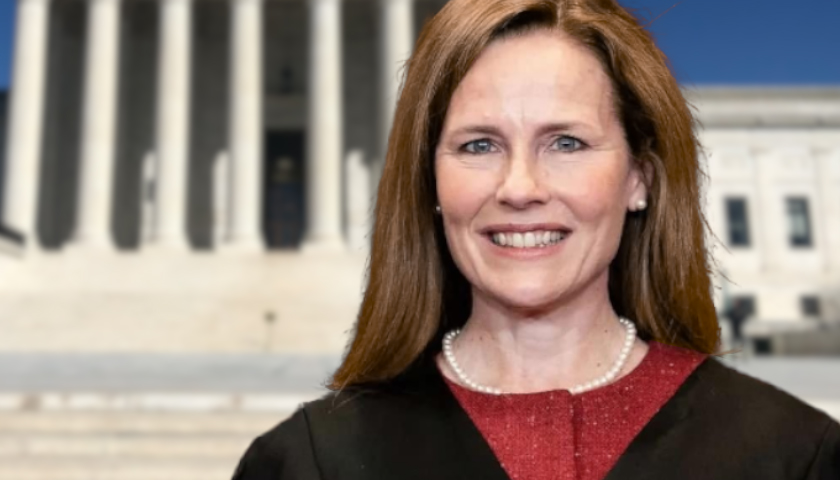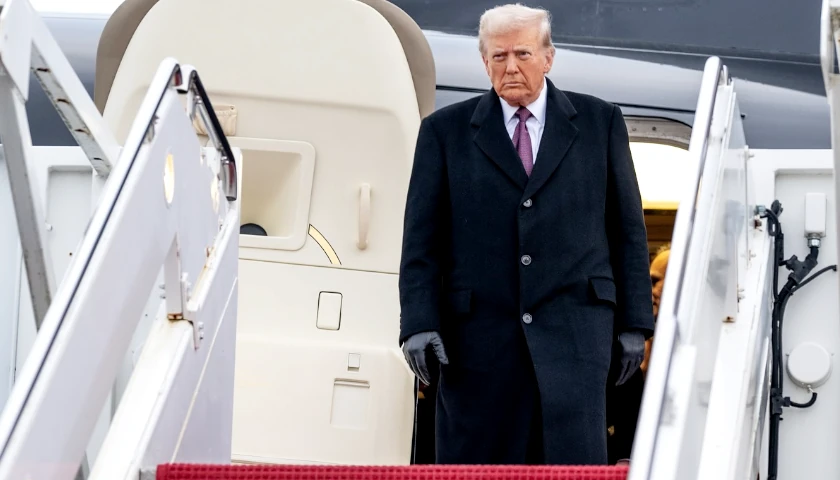by Margaret Menge
Supreme Court Justice Amy Coney Barrett on Thursday denied the request for an emergency injunction to stop Indiana University’s vaccination mandate from going into effect.
Her decision, however, does not mark the end of the road for the eight IU students suing the university, or for their attorney, Jim Bopp.
“The fight continues,” Bopp said in a videotaped statement late Thursday afternoon. “This is a fight for freedom. This is a long-term fight, and we are not giving up.”
Bopp said he had already filed an appeal with the 7th Circuit, appealing the three-judge panel’s denial of his request for injunction. A brief is due soon, he said, and he is preparing to send it to the court.
The eight IU students had filed a federal civil rights lawsuit in July, charging Indiana University with violating their rights under the Fourteenth Amendment.
Indiana University announced May 21 all students, faculty and staff were required to get the COVID-19 vaccine, saying students who hadn’t gotten it by the start of the fall semester would have their classes canceled and email accounts cut off, and that employees who hadn’t gotten it would be terminated.
The university said exemptions would be “strictly limited to a very narrow set of criteria, including medical exemptions, and documented and significant religious exemptions.”
Students were told they needed to get their first dose of the vaccine by July 1 in order to be fully vaccinated by the start of school. The university reported last week that 85% of students, faculty and staff have now been fully vaccinated.
In July, a judge in the U.S. District Court for the Northern District of Indiana ruled in favor of the university, and the 7th Circuit Court of Appeals affirmed this decision, saying if students didn’t want to get the vaccine, they could go elsewhere.
Indiana University is the largest university system in the state, and the Indiana University-Bloomington campus is the flagship campus, with more than 40,000 students attending classes on a campus that often tops “most beautiful college campuses in America” lists.
The application for an emergency injunction was filed to stop the university’s mandate from going into effect when classes begin Aug. 23.
If granted, the injunction likely would have stopped COVID-19 vaccine mandates from being enforced at other public universities around the country.
Barrett reviews cases coming out of the 7th Circuit Court of Appeals in Chicago.
– – –
Margaret Menge is a write for The Center Square.
Photo “Amy Coney Barrett” by Amy Coney Barrett, background photo “Supreme Court by Wikimedia.






Yep, apparently the “trusted” experts are President Trump shouldn’t have been trusted.
As a reminder, this is the same Supreme Court ruled that someone had to sell their land for a Pfizer building all in the name of “public domain.” (In 2001, Pfizer, Inc., moved to New London, Conn., as part of a project that involved massive corporate welfare and led to the abuse of eminent domain, culminating in the landmark U.S. Supreme Court case, Kelo v. City of New London. This past November, however, Pfizer announced it will close its New London research and development headquarters. This marks the end of an eminent domain error.)